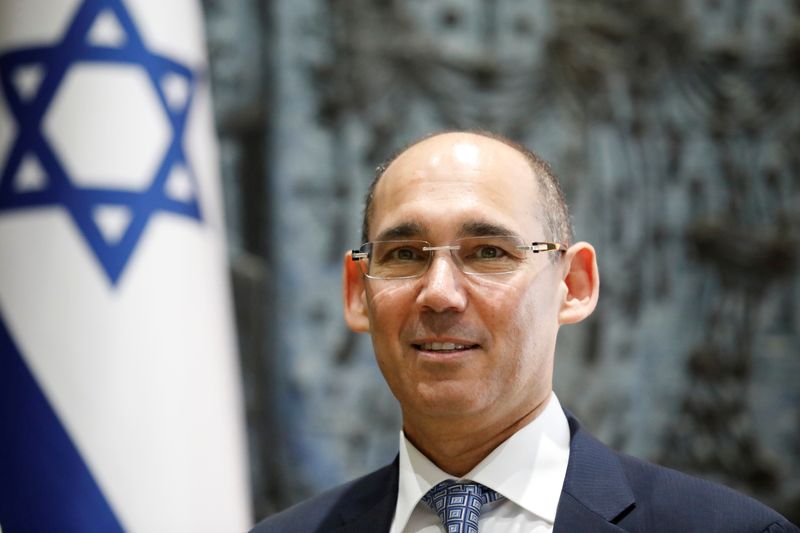JERUSALEM (Reuters) – Bank of Israel Governor Amir Yaron said on Wednesday he supports an expansionary 2020-21 budget to help the economy recover from the coronavirus pandemic, which has forced businesses to close and unemployment to jump.
“As long as the economy is in a phase of contraction or even a phase of recovery, we don’t want to tighten belts in a way that prevents it from growing as fast as possible and exiting the crisis,” Yaron told an online economic conference three days after a new government was sworn in.
The previous government passed a 100 billion- shekel ($28 billion) stimulus package, which has been funded by bond issues. The plan pushed up the expected budget deficit this year to at least 10% of gross domestic product, but so far Israel’s credit rating has held steady.
Yaron said once the economy and public finances were in better shape, the government must quickly return to a more responsible fiscal path.
“We will spread it over a few years. It will return us to the debt-to-GDP ratio we were at (prior to the crisis) and also we will drop to a reasonable budget deficit level,” he said.
New Finance Minister Israel Katz now has 90 days to pass a budget. Though it will probably be a two-year budget for 2020 and 2021, Yaron said he expects things will be re-examined early next year when there is less uncertainty.
Katz on Wednesday appointed Keren Turner-Eyal as the Finance Ministry’s director general to lead efforts to stabilize the economy and draft the budget.
The central bank projects a 5.3% economic contraction in 2020 and growth of 8.7% in 2021 as long as there is no second wave of the outbreak.
After weeks of a lockdown during which jobless claims soared, Israel has begun easing restrictions when its coronavirus infections declined.
(Reporting by Steven Scheer and Ari Rabinovitch, editing by Larry King and Angus MacSwan)



















